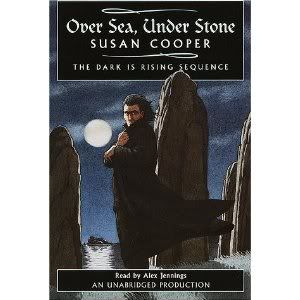
Merlin
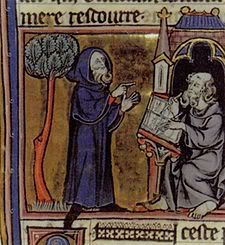
Merlin is a legendary figure best known as the wizard featured in the Arthurian legend. The standard depiction of the character first appears in Geoffrey of Monmouth's Historia Regum Britanniae, written c. 1136, and is based on an amalgamation of previous historical and legendary figures. Geoffrey combined existing stories of Myrddin Wyllt (Merlinus Caledonensis), a North Brythonic prophet and madman with no connection to King Arthur, with tales of the Romano-British war leader Ambrosius Aurelianus to form the composite figure he called Merlin Ambrosius (Welsh: Myrddin Emrys).
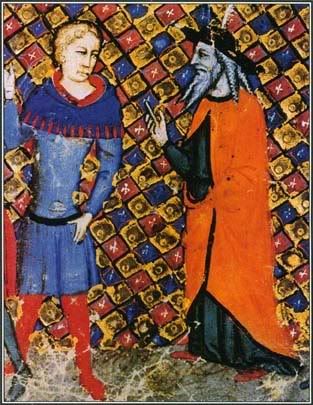
Well, that's what Wikipedia says. For the moment I'm less concerned with Merlin's etymology and am strictly dealing with the over romanticized Merlin of crossover fiction. Merlin (and Arthur) have been portrayed numerously in both literature and movies and television, from the dark ages to the SyFy channel. The beauty of such magical (and near omnipotent) characters is the idea that of all magicians they are the ones most likely to actually possess time and dimension (and parallel world) travel abilities.
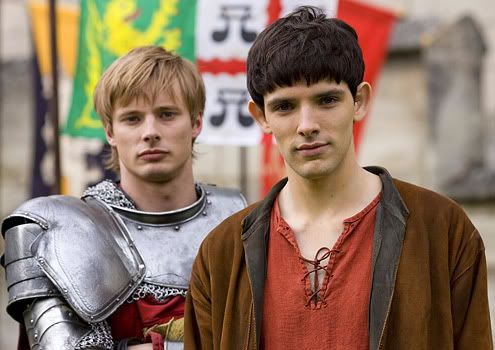
Here are a few of my favorite crossover incarnations of Merlin.
Marvel comics: A confusing amalgram of various characters used as a villian, trouble maker or general plot device.
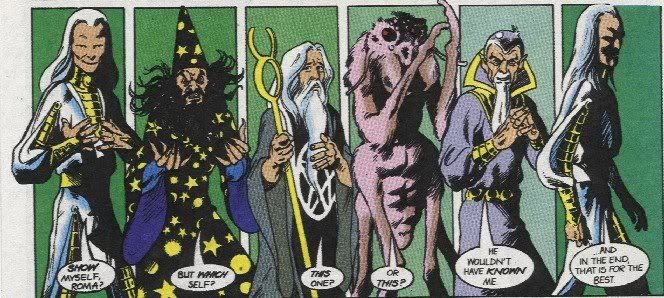
DC comics: A more straightforward version of the same Marvel comics wizard.
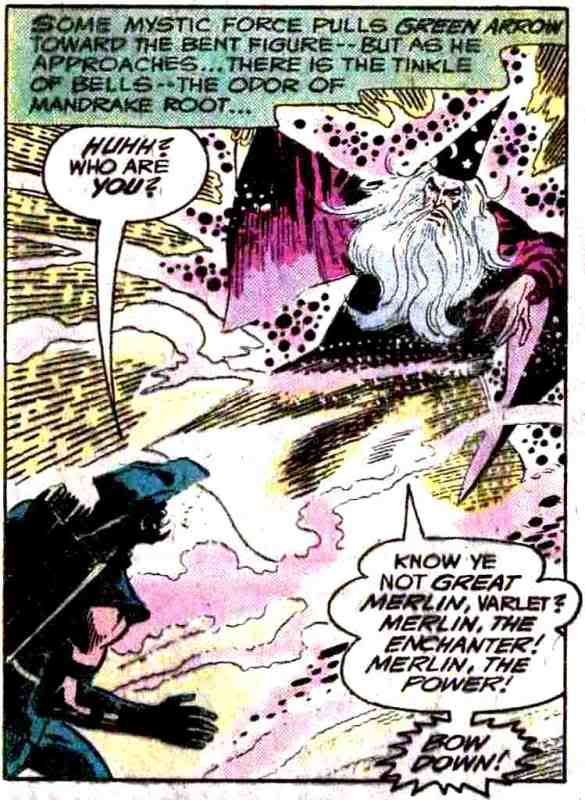
Doctor Who: Duh.
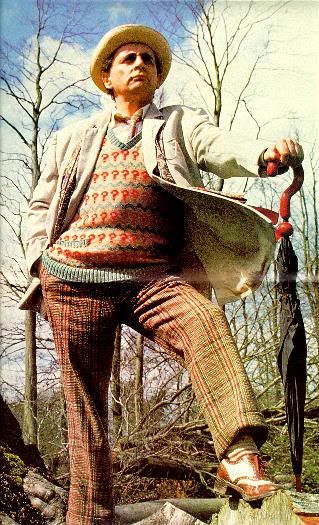
There are a dozen more, from Mark Twain to SG-1. I hope I get to them all. But for now I concern myself with the Dark is Rising series. These books are inevitably compared to the Chronicles of Narnia, as they feature a group of young siblings and assorted children encountering a world of magic amidst dry English settings. The older guardian and guide to the children is a mysterious fellow known as Merriman Lyon, a thinly veiled incarnation of Merlin. The storyline draws heavily upon an assortment of mythology, primarily Arturian legend. If you were to think that the description so far would lead one to believe that these books are not terribly original, you'd be right.
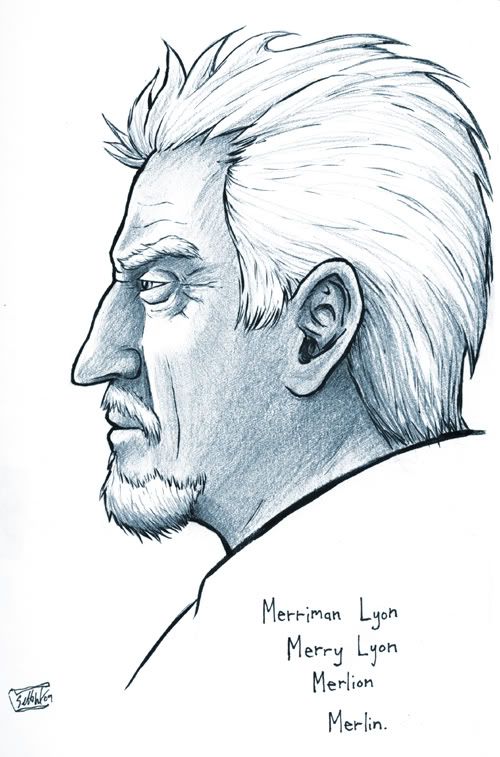
And yet author Susan Cooper does an excellent job of creating some compelling characters and weaving an intruiging modern legend of the Old Ones versus the Dark Ones in a somewhat epic battle. Where the series never gained major popularity (at least in the States) and only has some tepid made-for-TV movies to mark as adaptations, there is still a cult-like following of folks who read them as kids or discovered the books as young adults.
I found this book in my collection of science-fiction books my wife purchased from a book store going out of business. I knew nothing about it until the day I picked it up and started reading it.
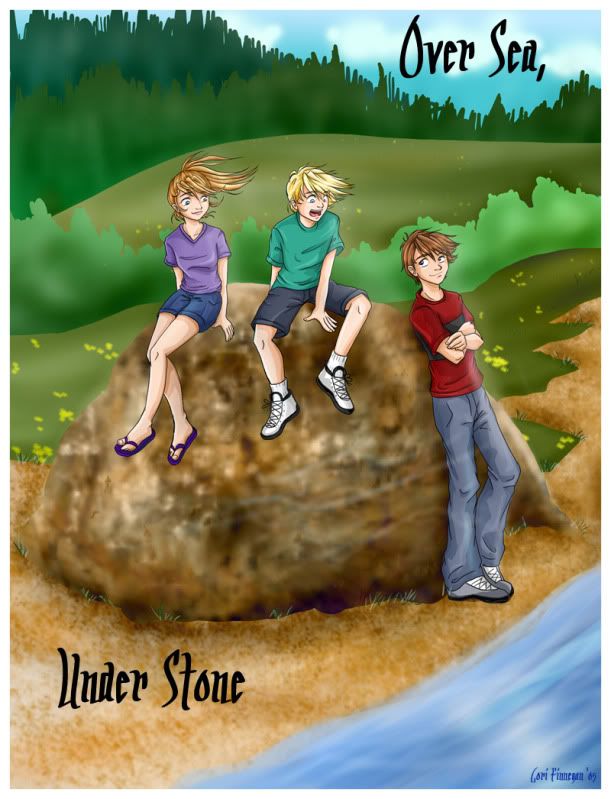
The first book in the series, Over Sea, Under Stone is like the Hobbit in that it is more of a prequel than the beginning of the main saga. It is unlike The Hobbit in that it is a bit drier and harder to read than the main saga. I think Susan Cooper truly was using the Narnia blueprint of kids exploring their relatives dusty summer house and discovering a magical device as a way to kick start her own concepts for a fantasy series. Some online reviewers suggest skipping this book altogether since it bears absolutely no relevance to the second book and doesn't factor in much to the rest of the series either. But a completist like me has to read every book (especially the ones I own), and I would argue that the introduction of 'Uncle Merry' and the youngest of the protagonists, Barney, is key. Barney seems to have the most instictive understanding of the magic at work, although he is immediately overshadowed and under-used in the remaining books. The pacing may be slow compared to modern Harry Potter expectations, but the fact that the magical elements are slowly doled out is a nice change of pace from the Alice in Wonderland plotlines.
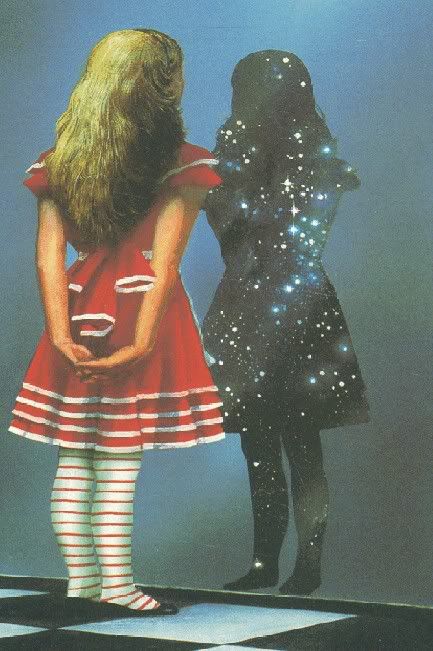
It's tempting to lump these books together and just do a 'Dark is Rising' post, but there is a good span of time between the releases of each volume, and I think I'll honor the spacing in my timeline by doing the same in the blog. Plus, multiple posts that tag Merlin are a good thing.
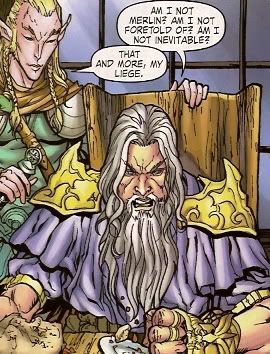
No comments:
Post a Comment